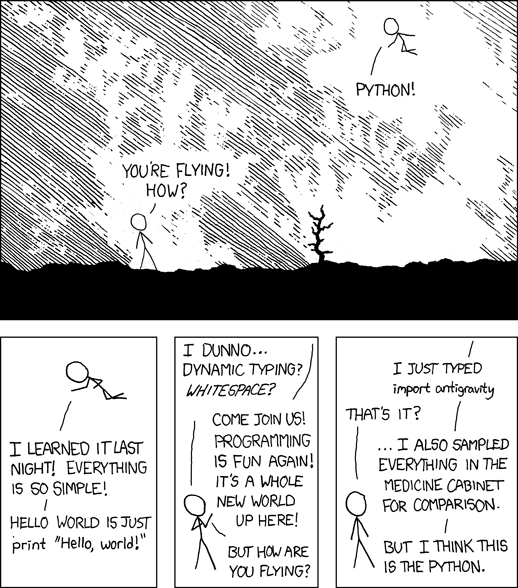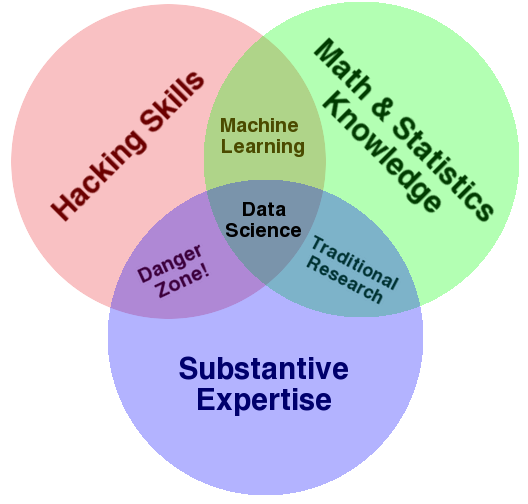Geographic Data Science - Lecture I
Introduction
Dani Arribas-Bel
Today
- This course
- The (geo-)data revolution
- (Geo-)Data Science
This course
Quiz
- Can you think of a real-world context where data and statistics are being used to make a difference?
- Have you ever heard the term "Big Data"?
- Have you ever heard the term "Data Science"?
- Have you ever written a line of computer code?
More stats than a GIS course, more GIS than a stats course...
...but in a fun way!
Philosophy
- (Lots of) methods and techniques
- General overview
- Intuition
- Very little math
- Lots of ways to continue on your own
- Emphasis on the application and use
- Close connection to "real world" applications
Logistics - Website
Logistics - Format
11 weeks of:
- Prep. materials: videos, podcasts, articles... 1h. approx. (most recommended!)
- 1h. Lecture: concepts, methods, examples
- 2h. Computer practical: hands-on, application of concepts, Python (highly employable)
- Further readings: how to go beyond the minimum
Logistics - Content
- Weeks 1-3: "big picture" lectures + introduction to computational tools (learning curve)
- Weeks 4-8: "meat" of the course (lots of concepts packed)
- Weeks 9-11: catch up + prepare an awesome Assignment II
Code
"Even if you won't be a poet, you need to know how to write"
Python

Python
- General purpose programming language
- Sweet spot between "proof-of-concept" and "production-ready"
- Industry standard: GIS (Esri, QGIS) and Data Science (Google, Facebook, Amazon, Netflix, The New York Times, NASA...)
Self-directed learning
Prepare for the labs
- I won't be leading/lecturing at the computer labs
- Go over the notebooks before the lecture and the computer lab --> If the first time you see a notebook is at the lab, you won't be able to follow on
- Bring questions, comments, feedback, (informed) rants to class/labs
- Use the forum (link on VITAL)
- Collaborate (it's NOT a zero-sum win!!!)
More help!!!
This course is much more about "learning to learn" and problem solving rather than acquiring specific programming tricks or stats wizardry
- Learn to ask questions (but don't expect exact answers all the time!!!)
- Help others as much as you can (the best way to learn is to teach)
- Search heavily on Google + Stack Overflow
Assignments
Mark (mostly) based on two assignments, due:
- Week 7 (40%), Week 12 (55%)
- Coursework
- Equivalent to 2,500: report (notebook) with code, figures (e.g. maps), and text
Discussion board (5%)
NOTE: recommendation letters only for great students (>70)
The (geo-)data revolution
The (geo-)data revolution
Exciting times to be a:
- Geographer
- Map fan
- Data fan
The world is being "datafied"...
"Datafication"
Quantification of phenomena through the systematic recording of data, "taking all aspects of life and turning them into data" (Cukier & Mayer-Schoenberg)
Examples: credit transactions, public transit, tweets, facebook likes, spotify songs, etc.
"Datafication"
Many implications:
- Window into human behaviour (this course)
- Opportunities for optimization of systems (Industrial IoT, planning systems...)
- Issues with intentionality and privacy
- ...
Why now?
Advances in:
- Computing power and storage
- Connectivity
- Geospatial technology
The (geo-)data revolution
The confluence of the three (computing, communication and geospatial) is creating large amounts of data.
Now, data in itself is not very valuable:
- Data --> Information --> Knowledge --> Action
Data Science
Methods, tools and techniques to turn data into actionable knowledge
Data Science

Data Science
Statistics + ...
Some examples...
Geo-Data Science
Geo-Data Science
- A (very) large portion of all these new data are inherently geographic or can be traced back to some location over space.
- Spatial is special.
- Some of the methods require an explicitly spatial treatment --> (Geo-)Data Science
Some examples...

Geographic Data Science'17 - Lecture 1 by Dani Arribas-Bel is licensed under a Creative Commons Attribution-NonCommercial-ShareAlike 4.0 International License.